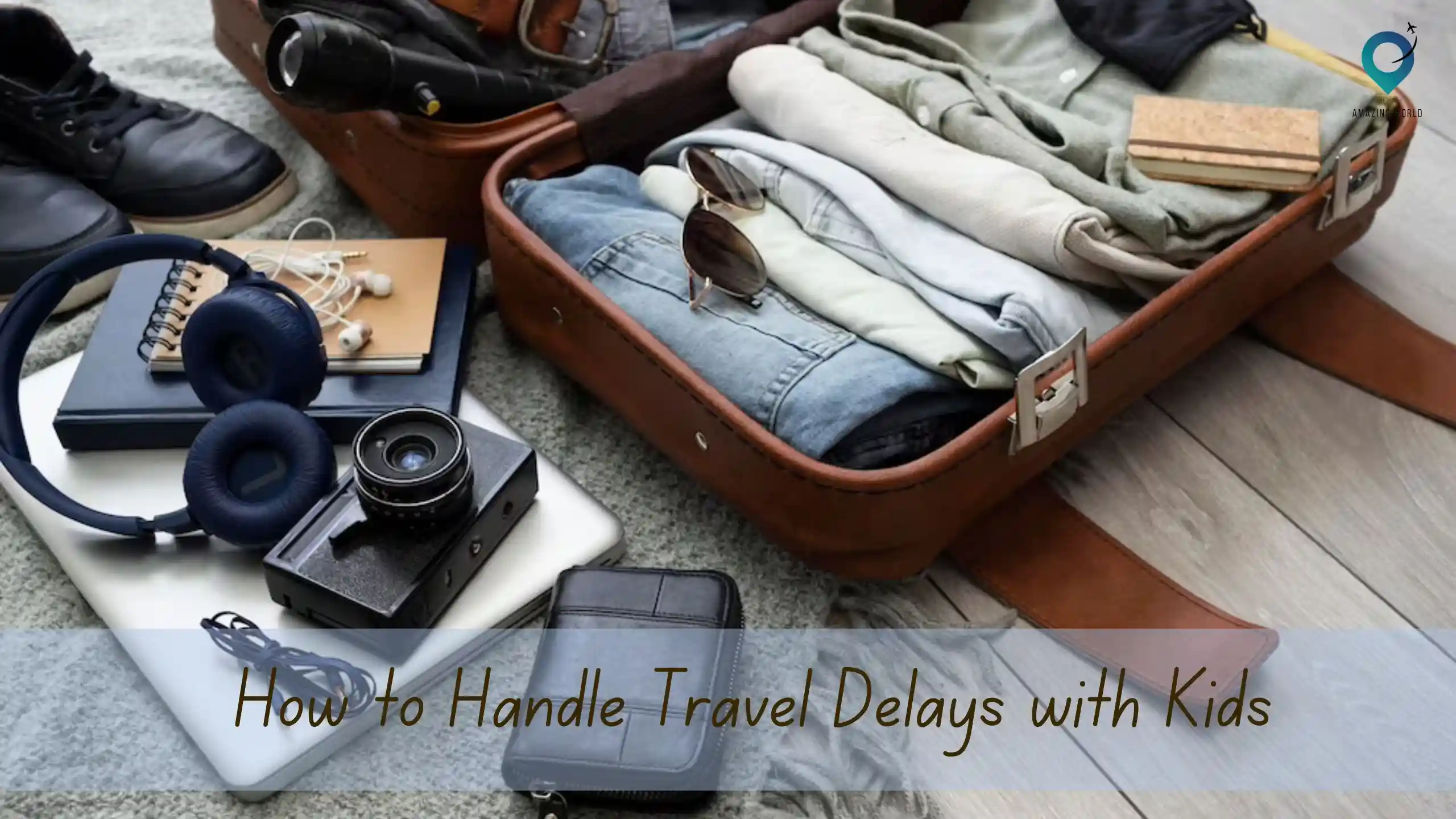Tips on How to Manage Jet Lag in Kids
Table of Contents
Toggle
Traveling with children can be an exciting adventure, but it can also disrupt their sleep patterns and internal body clock, leading to jet lag. Jet lag occurs when there is a misalignment between the body’s internal clock and the local time at the destination. This disruption can result in various symptoms such as fatigue, irritability, digestive issues, and difficulty sleeping.
Jet lag can be a challenging aspect of travel, especially when it comes to young children. As a parent, it’s important to ensure that your kids have a smooth transition during and after a long journey.
In this article, we will explore the causes and symptoms of jet lag in kids and provide you with effective strategies to manage it. By following these tips, you can help your little ones adjust quickly and enjoy their travel experience to the fullest.
What is Jet Lag?
Jet lag, also known as desynchronosis, is a temporary condition that affects individuals who rapidly travel across different time zones. Our bodies have an internal circadian rhythm, which regulates our sleep-wake cycle, hormone production, and other physiological processes. When we travel quickly across time zones, our internal clock struggles to adjust to the new time zone, causing jet lag.
Jet Lag in Kids: Causes and Symptoms
Children are more susceptible to jet lag due to their developing circadian rhythm and less ability to self-regulate their sleep patterns.
The main causes of jet lag in kids include:
- Rapid time zone changes during travel
- Disruption of familiar routines and sleep environment
- Inconsistent exposure to natural light and darkness
The symptoms of jet lag in kids may vary but commonly include:
- Sleep disturbances, such as difficulty falling asleep or staying asleep
- Daytime fatigue and drowsiness
- Irritability and mood swings
- Loss of appetite or digestive issues
- Difficulty concentrating or learning
Tips for Managing Jet Lag in Kids
To minimize the effects of jet lag on your children, here are some effective strategies you can implement:
Adjust Sleep Schedule Before Travel
A few days before your trip, gradually shift your child’s sleep schedule closer to the destination’s time zone. This helps their bodies adapt more easily to the new time zone and reduces the impact of jet lag.
Stay Hydrated
Proper hydration is crucial for combating jet lag. Make sure your child drinks plenty of water before, during, and after the flight to stay hydrated and minimize the symptoms of jet lag.
Avoid Excessive Caffeine and Sugar
Caffeine and sugary foods can disrupt sleep patterns and exacerbate the effects of jet lag. Limit your child’s intake of caffeinated beverages and sugary snacks, especially close to bedtime.
Get Natural Sunlight
Expose your child to natural sunlight upon arrival at the destination. Sunlight helps regulate the body’s internal clock and promotes wakefulness during the day, aiding in the adjustment to the new time zone.
Encourage Physical Activity
Engage your child in physical activities during the day to promote tiredness at night. This can include walks, playground visits, or even simple stretching exercises.
Maintain a Healthy Diet
Provide nutritious meals and snacks to support your child’s energy levels and overall well-being. Avoid heavy or greasy foods that can disrupt digestion and make it harder for your child to settle down for sleep.
Use Relaxation Techniques
Before bedtime, establish a relaxing routine that helps your child wind down. This can include reading a book, taking a warm bath, or practicing deep breathing exercises to induce a sense of calmness and promote better sleep.
Dealing with Jet Lag: Dos and Don’ts for Parents
As a parent, there are certain dos and don’ts when it comes to managing jet lag in kids. Here are some important guidelines to follow:
Do: Create a Comfortable Sleeping Environment
Ensure that your child’s sleep environment is comfortable and conducive to quality sleep. Use blackout curtains, white noise machines, and comfortable bedding to create a soothing atmosphere.
Do: Stick to Familiar Routines
Maintaining familiar routines, such as bedtime rituals and mealtimes, can provide a sense of security and stability for your child. Stick to these routines as closely as possible, even when traveling.
Do: Be Patient and Understanding
Jet lag affects everyone differently, and it may take some time for your child to adjust. Be patient and understanding, providing reassurance and support as they adapt to the new time zone.
Don’t: Force Sleep or Wakefulness
Avoid forcing your child to sleep or stay awake according to the local time. Allow their natural sleep-wake patterns to guide their rest, while gently encouraging them to adapt to the new time zone.
Don’t: Overplan Activities
While it’s essential to keep your child engaged and entertained during travel, avoid overpacking your itinerary with too many activities. Allow time for rest and relaxation, giving your child the opportunity to recover from jet lag.
Coping with Jet Lag: Practical Tips for Traveling with Kids
When traveling with kids, planning, and preparation can make a significant difference in managing jet lag. Consider the following practical tips:
Plan Flights Strategically
Choose flight times that align with your child’s regular sleep schedule. If possible, opt for overnight flights to increase the chances of your child sleeping during the journey and adjusting to the new time zone more easily.
Optimize In-Flight Comfort
Create a comfortable environment during the flight by packing essentials such as a travel pillow, blanket, noise-canceling headphones, and favorite toys or comfort items. These familiar items can provide a sense of security and make the journey more relaxing.
Engage in Quiet Activities
Encourage your child to engage in quiet activities during the flight, such as reading books, coloring, or solving puzzles. These activities can help them relax and pass the time, minimizing restlessness and discomfort.
Allow Time for Rest and Recovery
After reaching your destination, schedule downtime for your child to rest and recover from the journey. Avoid immediately jumping into sightseeing or engaging in strenuous activities. Gradually ease into the new environment to prevent overwhelming fatigue.
Natural Remedies and Supplements for Jet Lag
In addition to lifestyle adjustments, certain natural remedies and supplements may aid in managing jet lag in kids. However, it’s essential to consult with your child’s pediatrician before introducing any new supplements. Some options to consider include:
Melatonin
Melatonin is a hormone that regulates sleep-wake cycles. It can be taken as a supplement to help adjust the body’s internal clock and promote sleep at appropriate times in the new time zone.
Chamomile Tea
Chamomile tea is known for its calming properties. It can be a soothing beverage to offer your child before bedtime to promote relaxation and better sleep quality.
Lavender Essential Oil
The lavender essential oil has a calming scent that can help your child relax and fall asleep more easily. Diffuse a few drops of lavender oil in the room or add it to a bath before bedtime.
Magnesium
Magnesium is a mineral that plays a crucial role in promoting relaxation and sleep. Speak to your child’s pediatrician about the appropriate dosage and form of magnesium for their age.
Valerian Root
Valerian root is an herbal supplement that can aid in reducing anxiety and promoting sleep. It is available in capsule or tincture form but consult with a healthcare professional before giving it to your child.
Conclusion
Managing jet lag in kids requires a combination of planning, understanding, and implementing appropriate strategies. By adjusting sleep schedules, maintaining healthy habits, and creating a soothing environment, you can help your child transition smoothly and enjoy their travel experience. Remember to be patient and flexible as they adapt to the new time zone. With these tips, you can make traveling with kids a more enjoyable and hassle-free experience for the entire family.
How much did you like Our detailed Tips on How to Manage Jet Lag in Kids? Review Also, please share these Blogs with your friends on social media.
Related Article –
- Road Trips Ideas | 12 Tips to Prepare Your Car for a Long Road Trip?
- 150 Best Places to Visit in the United States In 2023
- Road Trip With Kids
- How to Stay Awake While Driving Long Distances
- Audiobooks to Listen to On Your Road Trip
- How Long Should a Road Trip Be
- 15 backpacks for adventurous travel
How to Manage Jet Lag FAQs
Is jet lag worse for kids than adults?
Jet lag affects children more than adults due to their developing circadian rhythm and less ability to self-regulate sleep patterns.
How long does jet lag typically last in kids?
The duration of jet lag varies from child to child, but it usually takes a few days to a week for their bodies to fully adjust to the new time zone.
Can melatonin help my child with jet lag?
Melatonin supplements may be beneficial in adjusting sleep-wake cycles and managing jet lag in kids. However, consult with your child’s pediatrician before use.
Are there any side effects of using natural remedies for jet lag in kids?
Natural remedies, when used correctly, generally have minimal side effects. However, it’s important to consult with a healthcare professional to ensure safety and appropriate dosage.
What are some other ways to help my child cope with jet lag?
In addition to the tips mentioned in this article, ensuring proper hydration, maintaining a comfortable sleep environment, and engaging in light physical activity can further aid in managing jet lag in kids.

Meet David Hoper, a passionate travel Blog writer with 7+ years of experience in travel content. Through his exemplary storytelling and engaging narratives, he shares his experiences and brings destinations to life. With a keen eye for detail and a love for exploration, he has cultivated a diverse portfolio of travel blogs that inspire and inform readers worldwide.








